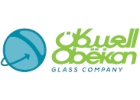High-tech glazing are essential to reduce buildings’ energy consumption and related CO2 emissions. In 2030, they could save around 29% of energy consumed in buildings thus leading to annual savings of over 94 Mt CO2.
But flat glass is not only about saving energy. Solar energy glass is an essential component of renewable energy technologies such as photovoltaics modules and Building Integrated Photovoltaic (BIPV), i.e. glazing with solar energy glass directly incorporated into building shells.
In its position paper on the recast of the Energy Efficiency Directive and the revision of the Renewable Energy Directive, Glass for Europe calls for adjustments and improvements to ensure that the 2 legislations complement each other in the best possible manner to deliver on the European Union’s 2030 goals.



























